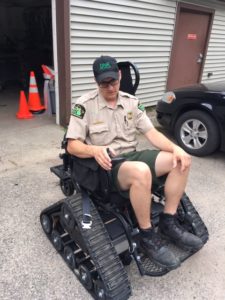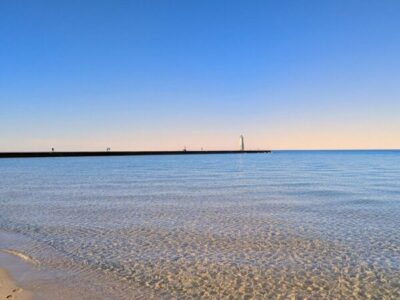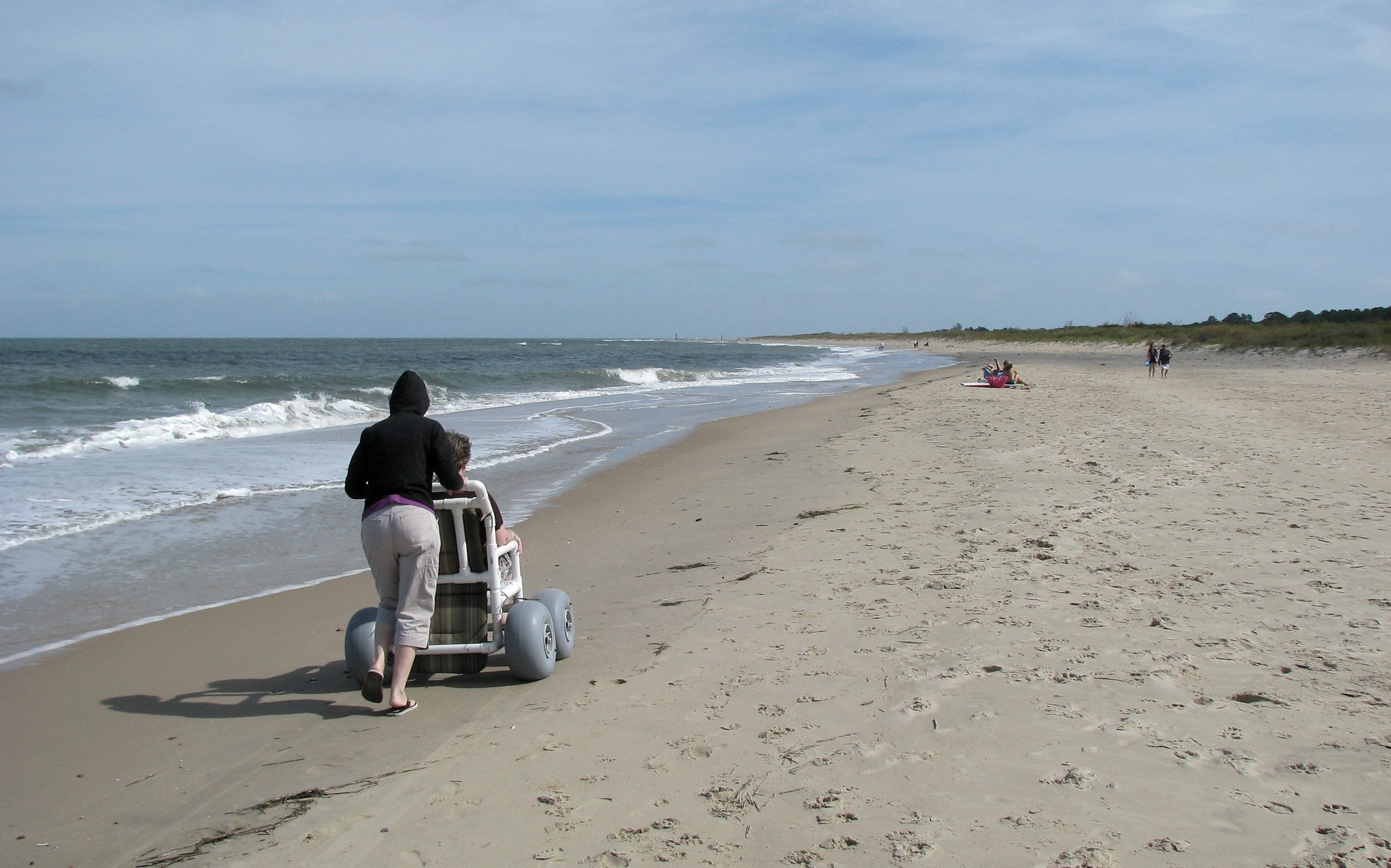
Summer is defined for many by outdoor activity. In the Great Lakes region, with its abundance of shoreline, that means access to beaches.
But beach accessibility can be a challenge for people with disabilities and limited mobility.
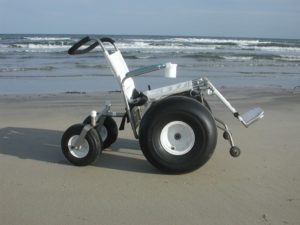
Beach wheelchairs are available for rental free of charge at Malaquite Beach Visitor Center in Texas, Photo by nps.gov
Beach surfaces are uneven and sand shifts, making it nearly impossible for people in wheelchairs or using walkers to safely enjoy a day at the beach as able-bodied people do.
But that’s changing.
Many Great Lakes beaches have options for those in wheelchairs, ranging from beach mats that provide traction and a stable path to the water; to wheelchairs with oversized balloon tires that allow access to any part of the beach.
And now, the availability of sophisticated track chairs is increasing.
Track chairs—think tracks like on a military tank instead of wheels—increase access to beaches and to nature trails, including those with uneven surfaces.
Nonprofits play a big role in increasing accessibility
Track chairs provide “good reliability,” Muskegon State Park officer Matt Schwein said.
Following a demonstration, a check to make sure the operator is capable and signing a waiver of liability, a user is free to hit the beach or a nature trail. The chairs have a four-hour life on their battery, and a recent user was able to complete the park’s nature trail and still have two hours of power remaining, Schwein said.
In Michigan, in addition to Muskegon State Park, track chairs are available at state parks in Northville, on Belle Isle in Detroit and at Tahquamenon Falls in Paradise. Michigan’s track chairs were donated by the Kali’s Cure for Paralysis Foundation.
Wisconsin has five beaches with inflatable tire wheelchairs that allow for mobility on beaches, according to Nick Zouski, the state’s DNR accessibility coordinator. Zouski, a wheelchair user, said other locations may have beach mats that provide access to the water.
Wisconsin does not directly provide track chairs because of the maintenance required to keep them operational, Zouski said. The state did provide a grant to the not-for-profit Access Ability Wisconsin that rents them at no charge.
The chairs are “regularly used throughout the state,” according to Monica Spaeni, Access Ability Wisconsin president, who says the organization operates in eight counties and is looking to expand.
But “Wisconsin state parks need vast improvement for accessibility from beaches to trails and more… and the wheels turn slowly,” according to Spaeni.
Zouski didn’t disagree, saying “the wheels of government always turn slowly” because the process involves securing funding and layers of approval. He expects improving accessibility to be a lifelong process that happens in increments.
Wheelchair users can also enjoy numerous beaches on the Canadian side of the Great Lakes.
Ontario’s Awenda, Pancake Bay, Pinery, Port Burwell, Sandbanks and Wasaga Beach Provincial Parks all have all-terrain wheelchairs for beachgoers. Pancake Bay, Rondeau Provincial Park and Wasaga Beach have wheelchairs available for use in water. Long Point Provincial Park does not have wheelchairs, but it does have beach mats.
‘Accessibility means a lot of things’
Wisconsin’s Zouski wants people to think beyond wheelchairs when providing accessibility opportunities.
“Accessibility means a lot of things,” Zouski said, referring to people with mobility issues who aren’t confined to wheelchairs. That group is the majority seeking accessibility assistance at state parks, he said.
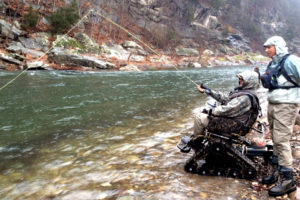
2014 Fourth Annual Project Healing Waters Fly Fishing Fly Fest, Photo by Project Healing Waters via flickr.com cc 2.0
He’s currently working on providing more information on Wisconsin’s vast trail system so potential users can make their own decisions on use.
In Chicago, the region’s largest urban area, 16 of the city’s 31 beaches have a “beach walk that provides a walkway over the sand” that allows wheelchair users access to the water’s edge, according to Chicago Park District spokesperson Irene Tostada.
Chicago beaches do not have track chairs but have beach-specific wheelchairs, including some that float, permitting users to go in the water, according to Tostada.
In Ohio, the sprawling Maumee Bay State Park bordering Lake Erie does not offer beach-accessible wheelchairs, according to Andy Thompson, the park manager.
“The park is free, open to the public and is not staffed,” Thompson said. The lack of staff and a facility on the half-mile beach were cited by Thompson as reasons for the absence of the balloon wheel and track wheelchairs.
Thompson said the park has six miles of wheelchair-accessible bike path and two wheelchair-accessible fishing piers on its inland lake.
Featured Image: First Landing State Park beach access wheelchair, Photo by Virginia State Parks via flickr.com


